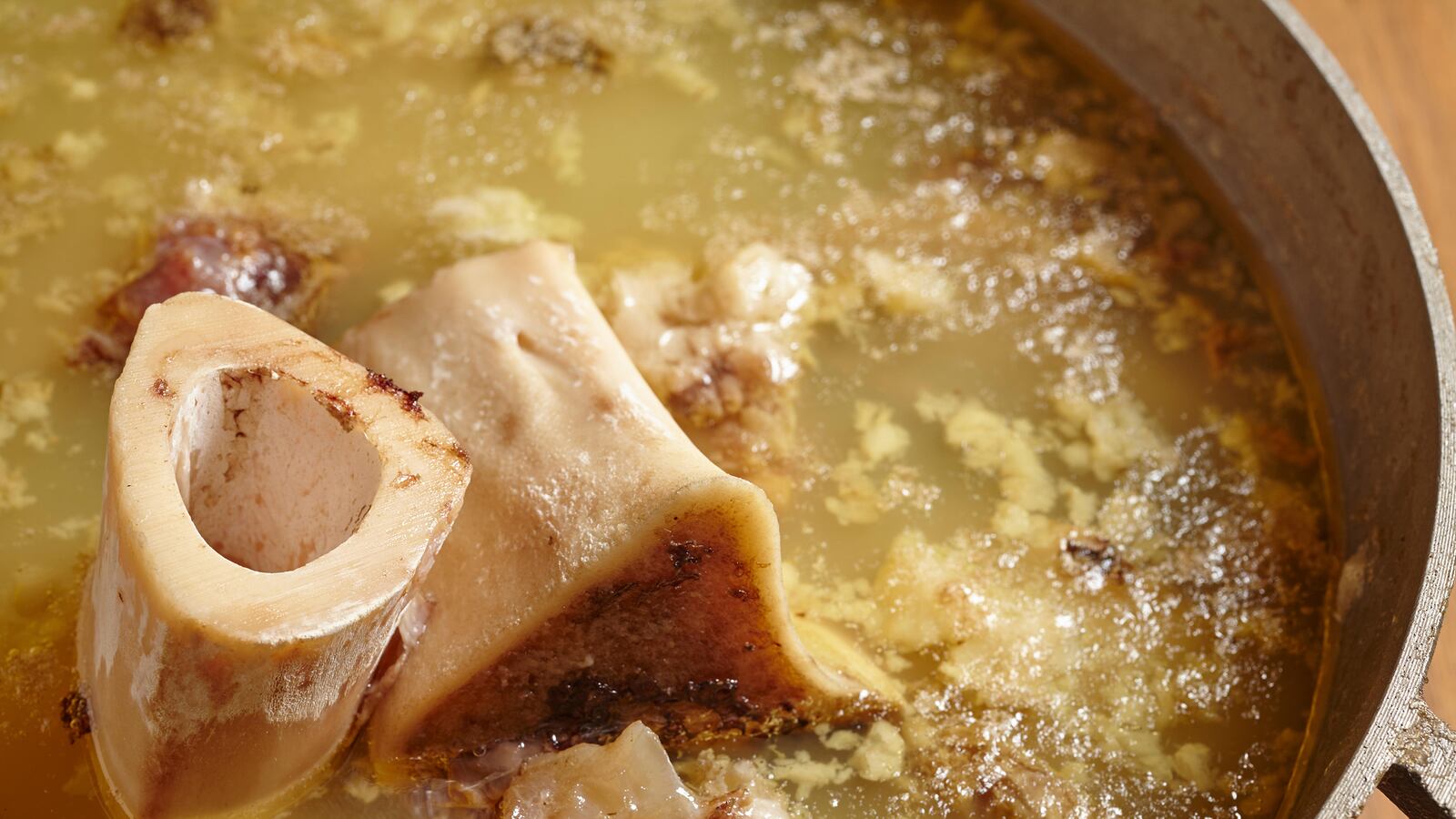Boiling up a big pot of animal bones is no longer just the pastime of Jewish grandmothers knocking up a batch of chicken soup: hipsters and health nuts have adopted bone broth as the latest in a line of food fads.
The desire for carcass consommé has spread rapidly across the U.S., with dedicated broth bars popping up everywhere from Portland to LA and Austin. The leader of the brotholution (work with me here) is Marco Canora, a man who decided that selling overpriced food to the hipster masses could only be surpassed by selling the meaty juices it’s cooked in, too.
The chef at East Village’s Hearth started up Brodo—that’s broth in Italian—in an unused entrance outside his restaurant last November, simultaneously spawning a nutritional craze and drawing ire from naysayers. “You want to name things that sound appealing, that draw attention,” he told Grub Street. “When cold-pressed juice came out, I didn’t hear a bunch of uproar about how these guys are just creating a term to charge more money. Nobody talks shit about naming something the Cronut.” “If some people want to say I’m raping and pillaging and selling meat-flavored water, that’s fine,” he added. Canora makes his stocks by boiling up meat, bones, and seasoning for hours at a time in order to create Brodo’s three flavors. And, at $9 a pop, the sweat of animal corpses has never looked so good. This offering may seem like the lovechild of Lindsay Bluth’s “hot ham water” and whichever prehistoric era-peddling scam artist trademarked the Paleo Diet, but the profit margins on broth are huge, and with restaurants now offering the stuff for anywhere up to $22, the only people less imaginative than those borrowing cooking tips from medieval peasants are those paying top dollar for the privilege.
As Canora says, though, he isn’t the first person to create something excruciatingly basic and then slap it with a hefty price tag. One of the newest kids on the overpriced block is plant water—yes, that’s right, water from plants—a somehow tragic spin-off from its faddy predecessor, coconut water. Touted by the likes of Gwyneth Paltrow, Madonna, and Rihanna, birch tree sap and artichoke water are making their way to store shelves worldwide. Taking advice from a former actress who believes “what makes life interesting [is] finding the balance between cigarettes and tofu,” a singer who has carved out a niche in mid-performance make-outs with her co-stars, and another who seems incapable of wearing more than two items of clothing at once would be fair grounds for scepticism—even if these products weren’t evidently extortionate bottles of snake oil. But its army of celebrity backers somehow makes the idea of paying $5 for tree dribble all the more absurd.
The real key to health food fads appears to be the absence of food itself. Whether it’s broth, flavored water or matcha—a finely ground green tea powder and new addition to the health cult ranks—why are people surprised they’re losing weight when consuming mostly water? I’d hazard a guess that some good old fashioned H2O and an apple would have near identical effects to the endless line of spurious trends emerging along similar, yet far more expensive, lines.
We can’t justifiably be annoyed with people for turning a profit off of things that seem wholly ridiculous, but anyone in search of a health boost should be aware of what they’re shelling out for. There are scarce scientific studies backing up the nutritional benefits of bone broth, for example (testimony from your Bubby doesn’t count), and given that it can be made in a myriad ways using bones both with and without marrow, its label as the health trend of our time feels unwarranted.
While broth-lievers think meat juice will be the greatest on-the-go beverage since the latte, something tells me that a $9 cup of gravy won’t be being sipped on the subway en masse anytime soon.





